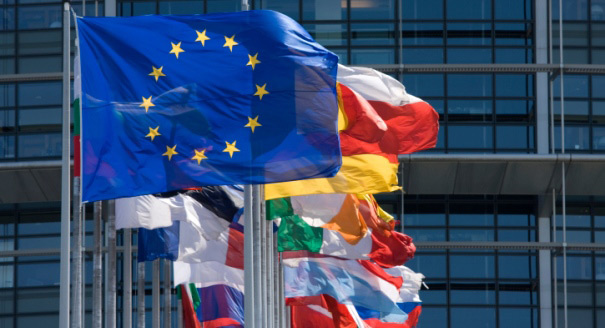Carnegie Europe’s sharp memo to the EU foreign policy chief reaffirms the ambitions of European foreign policy and suggests ways to realize them. The publication comes at a propitious time, when a new team is taking over.
I won’t dwell on the objectives the EU must achieve as a global actor, nor on the constraints it is facing right now. These objectives and constraints seem pretty well established, and they are well described in the memo. I will say a word, however, on the means and modalities of Europe’s external action. It is in this area that the EU most urgently needs a productive debate and effective decisions.
The foreign policy machinery of the EU is characterized by the plurality of its actors, of its tools, and of its procedures. Consequently, defining the role of the EU high representative as comparable to that of a national foreign minister is irrelevant. The memo suggests a more interesting and apt analogy with the U.S. national security adviser, proposing that the European External Action Service (EEAS) mirror the U.S. National Security Council, the smallish bureaucracy run by the national security adviser.
However, this comparison may still not capture the whole complexity of the European system, with its many chessboards: the member states, the European Commission, public opinion, and, of course, other countries—the international scene itself.So, what is the most adequate way to define the position and the role of the EU high representative in this system? In my opinion, the EU should first and foremost try to agree on a good institutional balance. And, by doing so, Europeans must avoid two particular dangers: overpoliticization and underpoliticization.
If an international initiative or negotiation is conducted without real diplomatic input and without taking into account all its political dimensions, a situation of underpoliticization arises. To some extent, the EU-Ukraine Association Agreement, which includes a Deep and Comprehensive Free Trade Agreement, illustrates this scenario. This accord was pushed by the commission with little or no say from the EEAS.
By contrast, injecting intergovernmental procedures into well-functioning community mechanisms like trade can lead to a situation of overpoliticization and weaken the EU where it is strongest. Therefore, it would probably not be good for the high representative to control every possible EU instrument abroad.
Avoiding these two dangers is a matter of fine-tuning. The high representative, who is also a vice president of the commission, is in a very good position to achieve the right balance between the EU council and the commission, between the administrative level and the political level, and between community procedures and intergovernmental cooperation.
The real danger in EU foreign policy is a lack of leadership.Tweet This
This institutional fine-tuning also implies taking into account the various centers of decisionmaking in the area of external action and, above all, using these centers wisely. I do not think that European foreign policy is jeopardized by the activism of member states. The way I see it is the opposite: the real dangers are a lack of leadership and a lack of political momentum.
In the same way, strengthening the multilateral system might not be simply about giving away member states’ national seats at international organizations. Who guarantees that emerging powers, which have not exactly demonstrated their enthusiasm for multilateral bodies, would make good use of that self-effacement?
When it comes to the means of the EU’s external action, it is surprising that the memo avoided the issue of sanctions, which have been growing in importance in the last few years. It is true that coercion is not the natural way for the EU, which is generally considered (and too often considers itself) a soft power, more comfortable with spreading the rule of law than with putting pressure on other countries. But this cliché doesn’t reflect reality—at least, not any longer. Over the past few years, sanctions have become a tool of choice for EU foreign policy.
Two significant points should be highlighted here. First, EU sanctions are sovereign in nature, as they can be decided independently of the UN Security Council. Second, sanctions have de facto extraterritorial reach, a feature that Europeans used to recoil at in the 1990s.
The EU’s united approach in imposing sanctions against Iran over its nuclear program and, more recently, against Russia over its role in the Ukraine crisis illustrates the growing importance of these measures. It would be interesting in this regard to assess the coordinating role of the EEAS in the launching of sanctions regimes, which, according to their nature, fall within the scope of either community law or the Common Foreign and Security Policy.
The diversity of the EU's action is an asset not a handicap.Tweet This
The use of sanctions does not deprive the EU of other, more positive means of action, for instance those included in the partnership policy the EU has been pursuing for many years or mediation mechanisms. A particular example is the European Institute of Peace, which was created in early 2014 in Brussels.
The diversity of the EU’s means of action is an asset rather than a handicap for the union’s foreign policy. The same goes for the EU’s polycentric nature, which can be very useful in today’s both integrated and fragmented world. The EU’s multifaceted design can allow it to present different faces to the world, be more nuanced or even schizophrenic in its policies—or play good cop, bad cop. Let’s accept the EU’s complexity with no qualms: it has its uses.


-2.png)

.png)

.png)